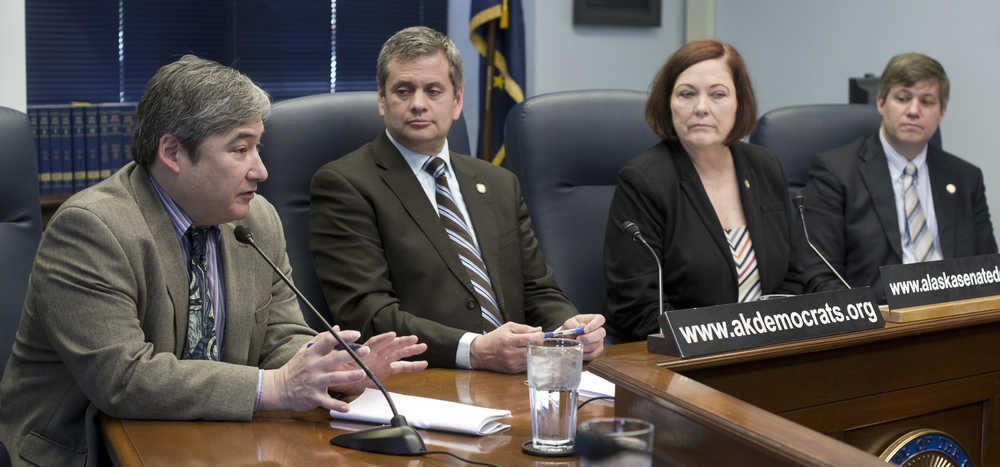JUNEAU — Senate President Kevin Meyer said Tuesday that he doesn’t think there’s broad support in his chamber for a restructuring of Alaska Permanent Fund earnings.
He said that not including tax bills, it would be the hardest bill of those left in play for the Senate to pass.
Rewrites of Gov. Bill Walker’s bill calling for structured annual draws from permanent fund earnings and changes to the dividend program are pending in the House and Senate Finance committees. They call for annual draws of 5.25 percent of the average market value of the permanent fund for the first five of the six preceding fiscal years. A dividend of $1,000 would be guaranteed for three years and after that be based on 20 percent of the draw and an amount equal to 20 percent of resource royalties.
During a House hearing Tuesday, Rep. Les Gara, D-Anchorage, said he worries that provisions of the rewrite reducing the payout as oil prices rise are a “pathway to austerity” since they would limit the revenue available to address areas that have been cut in recent years.
Attorney General Craig Richards said the provisions speak to concerns about budget volatility and growing government when oil prices rise.
“What that does is, one, it’s frankly, I think, the right way to handle the permanent fund, which is, we’re not spending it when we really don’t need it,” he said during the hearing.
The portion of the draw dedicated for dividends would not be affected by the reduced payout.
Sen. Mike Dunleavy, R-Wasilla, said he doesn’t support a permanent fund restructuring this year. He said there are a number of members in the Senate who see room for further budget cuts “before you go to Alaskans and say, Give me your money.”
The structured use of permanent fund earnings is seen as a cornerstone of Walker’s fiscal plan. It’s one of the big pieces still under consideration during the extended legislative session, along with oil and gas tax credits, tax bills, state spending plans and changes to the state’s criminal justice system. The permanent fund piece alone wouldn’t close the state’s budget deficit.
Resolution on credits is seen as key to making further progress on the budget and revenue bills. The House Rules Committee scheduled a meeting on the credits bill that stalled in the House for Wednesday.
Minority Democrats on Tuesday laid out concerns with the current oil and gas tax and credit structures, with Sen. Bill Wielechowski calling the need to make fixes to the system a “line in the sand.”
Walker proposed eliminating certain credits and raising the minimum tax on North Slope producers, an idea that’s been a hard sell. House Minority Leader Chris Tuck, D-Anchorage, has said his caucus wants changes at least on par with what Walker proposed.
A number of legislators have expressed openness to addressing elements like credits in Cook Inlet. But some lawmakers have worried about the impact that big changes will have on an industry hit by low oil prices.
Lawmakers also had yet to resolve differences on a bill that would allow for national criminal history checks for applicants for legal marijuana business licenses. That bill has been stuck over differences on a provision that would bar legal marijuana operations in unincorporated areas outside of organized boroughs but allow communities in those areas to hold local elections to allow for pot businesses.

